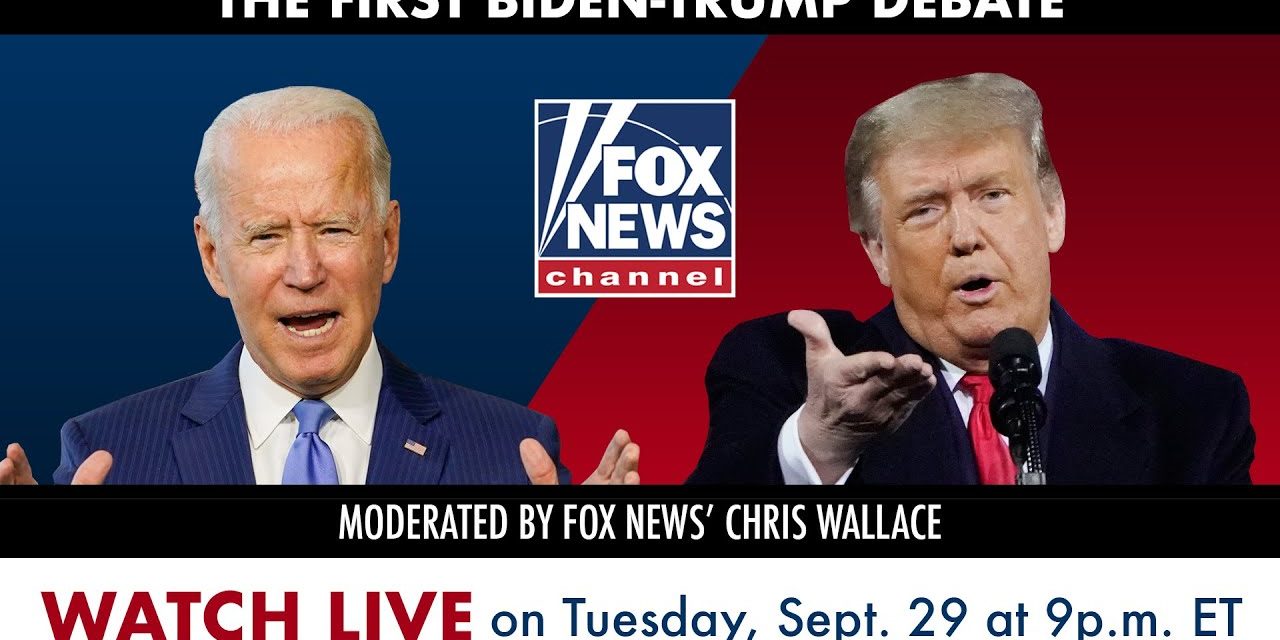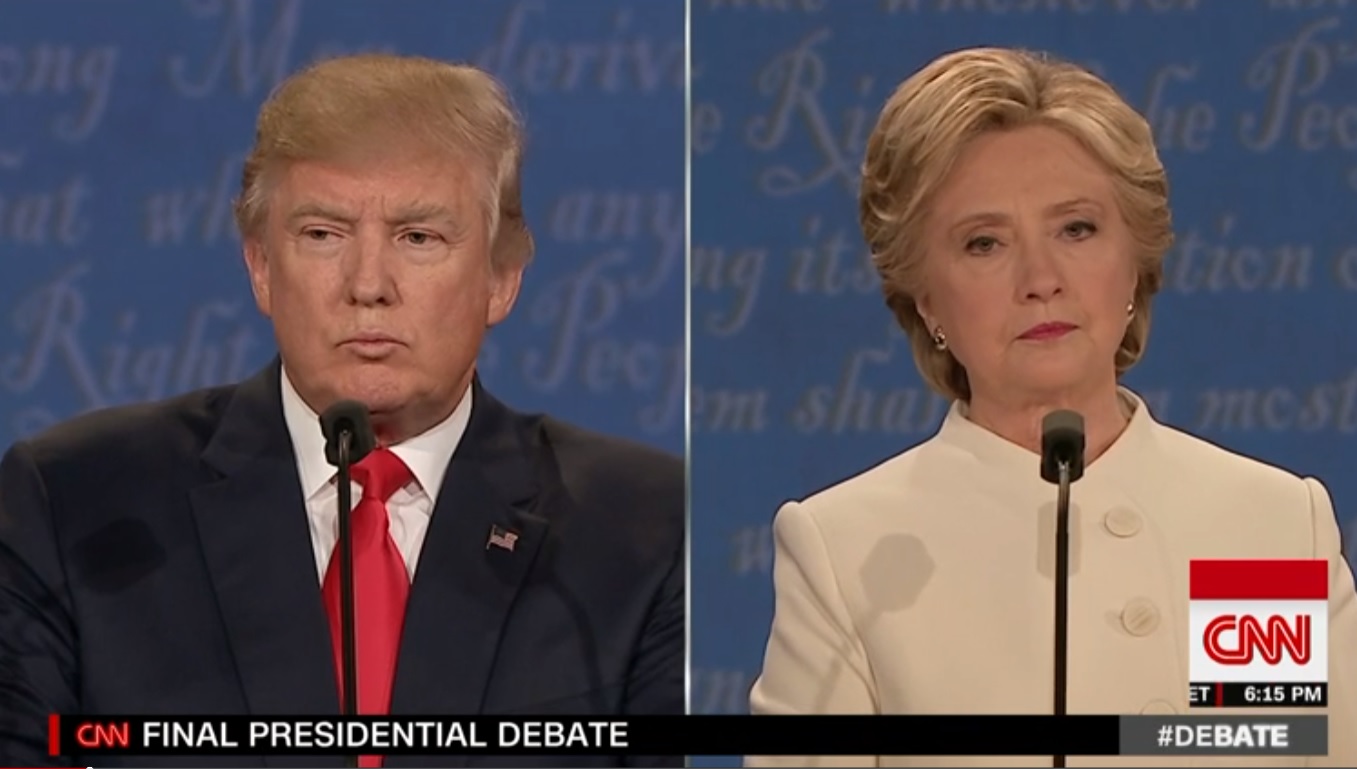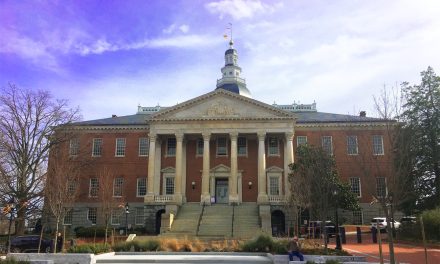The presidential debate schedule has been set, and as always, since 1960, save 1964 and 1968, and 1972, such debate participation has been the de facto law of the land.
Implications by Speaker Nancy Pelosi that Vice President Joe Biden should not and might not participate were quickly doused by Biden himself, but not before they worried Democratic voters.
The first presidential debate on next Tuesday, Sept. 29, in Cleveland, Ohio, may tell the tale as first debates often, but not always, do
The debates will bring questions of “Who won?” by the public and confident assertions of “Who Won:” by the journalistic class, as well as absolutely predictable shouts of “Biden won!” and “Trump won!” by non-disaffected Democrats and Republicans respectively.
Historically, sometimes presidential debates have had not much effect on who won the White House: they may have won it for then-Sen. John F. Kennedy. He won hands down for those who watched on television as the handsome, fluent and articulate JFK ran roughshod over the perspiring and grim-looking Vice President Richard M. Nixon, who did much better with poll respondents who listened on radio.
Debates also may have had a dispositive effect in 1976 and 1980. In the former Gerald Ford, who had pardoned Nixon, quite surprisingly stated “There is no Soviet domination of Eastern Europe, and there never will be under a Ford Administration.” He claimed he was speaking metaphorically, but for a public tired of Nixon news and Republicans, it was enough.
In 1980, the presidential debates reassured the public that former California Gov. Ronald Reagan was not crazy-right, and that the economy and seemingly incoherent and weak foreign policy of President Jimmy Carter were dispensable for a small risk.
In 1992, President George H.W. Bush seemed tired and out of sorts, but what lost him the presidency was the debate inclusion of businessman Ross Perot…two respected principals against one spells a loss for almost every debate candidate.
In the year 2000 Vice President Al Gore seemed to have a bizarre change in personality in every debate against Gov. George W. Bush. That, and not the Florida vote count, seemed to do in Gore.
The debate in 2004 was not enough to convince people that Sen. John Kerry was no longer the anti-military, war-protesting flip-flopper that even Democrat-loving Saturday Night Live depicted him to be.
In 2008 and 2012 the debates were almost superfluous, as they were for different reasons in 2016. In different ways against Senator and then President Obama, John McCain’s political mistake, later admitted by him of choosing Alaska Gov. Sarah Palin, was doom-producing, and Gov. Mitt Romney’s run, which petered out following the first presidential debate, was nowhere near what it would have taken to win.
Popular presidents come back from initial weak performances in debates, as did President Barack Obama, who came back from a lethargic performance to dominate Gov. Mitt Romney.
Which brings us to businessman and then president Trump in 2016 and 2020. The intensity of love and hatred for Trump and Secretary of State Hillary Clinton was such that the debates were likely to make little or no difference, and they didn’t.
The debate next week may be quite consequential. Everything is in flux: the economy, foreign policy, the intensity of support by centrist Americans, the age and health of the candidates, the unpredictable verbal affronts by Trump and the coverage of the election by arguably biased media.
There is a good start in the choice of Fox’s Chris Wallace, the only fair questioner in this critic’s eyes so far in the campaign.
Questions of substance
Herewith just a few substantive questions, heretofore ignored by the mainstream press for Biden and the right-wing press for Trump. Remember that good questions are worthless without pointed follow-ups if the questions are avoided:
To Biden: How do you explain the general silence of Democrats on the violence in Democratically controlled cities and specifically the verbal assault on Sen. Rand Paul in Washington, D.C. following the Republican National conventions?
To Trump: How do you justify not even commenting on the attempted poison murder of Putin critic Alexei Navalny, believed to be on the order of Putin himself.
To Biden: What would you have done if the rioting in Portland had occurred under your presidential watch? Would you, as President Trump has done, have sent in federal agents to Portland and Washington?
To Trump: How do you justify telling your supporters in North Carolina and elsewhere to vote (illegally) twice to ensure they are counted?
To Biden: What have you recommended publicly that would have had better success in combating the Coronavirus better than President Trump’s policies?
To Trump: What do you say to people who claim your economic policy helps the well-to-do while neglecting all of those suffering from unemployment, underemployment and loss of governmental services?
To Biden: What is your response to President Obama’s defense secretary Robert Gates who said you were “wrong on nearly every major foreign policy and national security issue over the past four decades?”
To Trump: Why should the Senate rush through a consideration of your Supreme Court nominee when Merrick Garland couldn’t even get a consideration with many more months available during the Obama Administration?
Let this presidential year’s consequential presidential debates begin.







Recent Comments